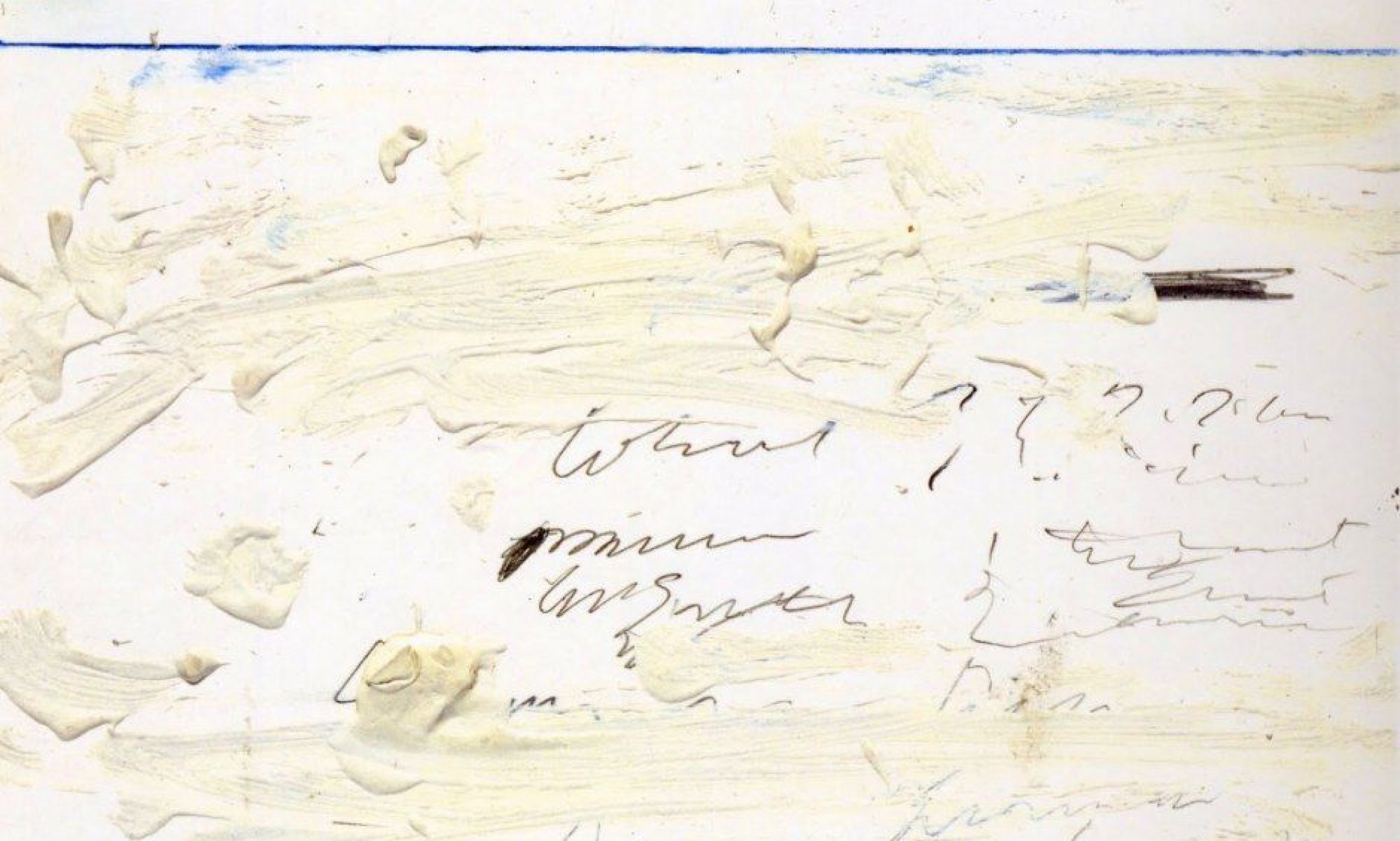I found myself thinking afterwards about a couple of questions that came up along the way. First, Mairead’s observation about the status of the script. Saul Williams’ performance had a wonderfully complicated relation to his scroll—it brought a combination of Old Testament and legal authority (all the whereas’s etc.), but was also almost comically long, and the more urgent the monologue became, the less he referred to it; casting it aside was a definitive gesture, as though to let improvisation or inspiration or even possession (by what?) take over. Drama, of course, usually declares its independence from the script even before the play starts. A poem has a friendlier, ongoing relation to writing, though there may be some ambition to independence there too, not as performance, but as memory. The idea of holding the whole poem in the mind. It’s interesting to think of those two vectors—out into the audience, inward into memory—affect the way we receive drama and poetry, and as always, when they want to change places. (When a poem calls for performance, when a drama turns inward.)
We talked with Nathan about that basic problem of performance happening in time, and poetry encouraging us to stop, go back, interpret its complexity in ways that are too dense and recursive for real-time performance. (We might do well to think of these as two kinds of reading/hearing, rather than as a judgment on their objects.) There was an interesting discussion of how we respond to complexity and confusion in both: in drama, by receiving it as confusion (cf. Othello’s “Not to comply with heat” etc.), and in poetry, by slowing down, going back, attempting to understand. Nathan’s attention to the dramatic craft of Romeo and Juliet was fascinating. First, his sense of the motives and affects that propelled a couple of key speeches (Romeo’s discovery of Juliet, such a strange joy elevating his diction), and Friar Lawrence (fearful of a judgment against him, filling up the play with his self-defense). The way that the tragic turn is held back, held back by Romeo’s enthusiasm—as Nathan gave it to us, that was a case of a playwright’s know-how, organizing the materials of poetry (especially Romeo’s use of metaphor) to soften the audience for the blow of his suicide. There is craft knowledge in poetry, of course, as there is in drama. (Meter is one example of it.) But I thought it was fascinating to set that urgent, in-time calculation of how to make the audience feel, against the slowed-down analysis of tropes and patterns of tropes (as in Cassy’s shrewd observations about the role of sight and hearing). Shakespeare seems able both to pry them apart, and to make them work together; to bring poetry into a play as something alien, as an alternative to the action, and to weave it into the flux of psychological and social forces that won’t stop, so long as the play hold the stage, for anyone.
